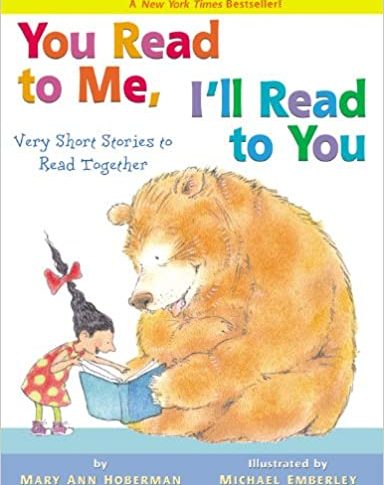Money Matters for Parents and Their Kids
[amazon_image id=”0840790880″ link=”true” target=”_blank” size=”medium” ]Money Matters for Parents and Their Kids[/amazon_image]
I think this book has a lot of good information, however, I thought it was rather dry and it took me a while to get through. Most chapters are about ten pages long, so it should have been easy to get through. I don’t know if I just had a lot going on at the time or what. I got my copy from Paper Back Swap.
Chapters
- The Challenge
- The Model
- The Requirement
- The Basics
- An Old-Time Walue-Work
- You Can’t Have Everything
- Who Are the Financially Mature
- A Hated Word-Budgeting
- Getting Money the Easy Way
- Decision Making
- Goal Setting
- The Training System
- The System Continued
- But What About …?
- Leaving Wealth to Children
- Here’s My Problem
Review
This book did take a while for me to get through, and I’m not really sure why. When I look over my notes, there are some really great things in there!
They talk about four principles and four skills. The principles are: God owns it all; there is always a trade-off between time-and-effort and money-and-rewards; there is no such thing as an “independent” financial decision; and delayed gratification is the key to financial maturity. The skills are: how to develop a one-year spending plan; how to buy wisely; how to make financial decisions; and how to set financial goals.
They discuss in the book giving your children control over their wardrobe. You figure out how much you usually spend on their clothing over a year and divide it into a monthly budget. You give them their clothing money and it is up to them to budget and spend wisely. If that means they take it all and spend it on a designer pair of jeans, then they may really rethink their decision when there is no money left over to buy a winter coat. This also means they will need to do some extra “work” to obtain money so that they can buy a coat! I suggest, if doing this, the first time around, it would be good to have a financial meeting in the beginning and to “talk” through the year and anticipate expenses.
I’ve also heard of having the teenagers be in charge of groceries and cooking for a year. It is up to them to organize/plan all the meals and get all the ingredients within the allotted budget. I think all of these ideas are great.
I’ve have friends tell me that they don’t want to give their children allowances because they don’t want to teach their children that money is just to spend. I however, come from a different perspective, where finances were not taught in my house and both of my parent were not very good financial management examples (sorry Mom & Dad!). I thought you could get whatever you wanted pretty much whenever you wanted. It was hard getting out into the real world and having to learn all of this, so I suggest, teaching by example and giving them plenty of opportunities to practice!
I think that the best way to teach your kids about finances is to live it. Most of the time; “More is caught than taught,” and I think that finances are no different.
Quotes
- “Each and everyday, parents are building either positive or negative patterns into their child’s life-patterns that can last a lifetime.”
- “Across the country (right next door to poor communication), inadequate money management-and it’s resulting stress-fractures more marriages than any other factor.”
- “… being successful means “being able to have whatever you want whenever you want it.” That is probably the best definition of materialism I know.”
- “The point is this: As parents, we are models for our children and grandchildren, and we have a choice. We can be good models or bad models, and the type of models we are will affect future generations.”
- “Conflict occurs when reality does not meet expectations.”
- “Training deals with the will, but teaching deals with the intellect. Teaching is included in training, but teaching is not the same as training. Children must understand what they should do. This is teaching. However, they are not trained until they, of their own free will, choose to do what they should do.”
- “Probably the biggest mistake that parents make in training children to manage money is not giving them the freedom to fail.”
- “To be unable to deal with failure in any aspect of life is to be crippled.”
- “They shouldn’t be paid for every job they do around the house. Work has benefit, in and of itself that is above and beyond the economic benefit of working; and it is important, as a part of the training process, for them to experience this benefit.”
- “They have chores because they are members of the family, and they receive allowances because they are members of the family. The two are not dependent on each other.”
- “… the longer term the perspective, the better the financial decision that is likely to be made.”
- “… making a budget is the same as taking a trip with a preplanned route so that when you get to an intersection; you know which way to go. Rather than create rigidity, it brings freedom. It lessons confusion, fear, and frustration.”
- “Not to teach your children the skill of decision making is to rob them of a vital skill for the process of living.”
- “One aspect of teaching your children decision making may be particularly difficult for you. You must stop making their decisions for them! Give them the opportunity to make decisions. Give them the freedom to fail. Give them the freedom to express their priorities and objectives. Give them the freedom to learn while you are there to help and counsel them.”
- “Having well-defined goals provides both direction and motivation.
- “The denial of wants and desires teaches children many things, including the truth that there are boundaries in life, and all of us need those boundaries. As strange as it may seem, boundaries are freeing. When we know where the limits are, we can enjoy moving around within them.”
- “… peer pressure is not a money issue; it is a self-worth issue.”
- “Very quickly they find out whether the acceptance by their peer group is as important as the time required to work to provide what the peer group says they have to have.”
- “Too often we parents become convinced that if we don’t give our children what they want or think they want they won’t respect us or love us as much. Quite the contrary is true.”
- “… children do not have to be treated equally. What is important is that you treat each of your children with justice and fairness.”
- “Until there is a limit, there is no value to money.” (emphasis added)
- “When they understand the long-term implications of a choice, and that our love is not dependent upon choosing what we would choose, they have a great deal of freedom and security in deciding and going on.”
Overall, I think the advise in this book is very good. It also gave me some ideas on things to give my own children a chance to do, once they reach the appropriate age.
Resources to check into:
[amazon_enhanced asin=”0840790880″ /] [amazon_enhanced asin=”1937077055″ /] [amazon_enhanced asin=”0963571222″ /]
[amazon_enhanced asin=”1937077632″ /] [amazon_enhanced asin=”0977489582″ /] [amazon_enhanced asin=”1937077500″ /]





-
-
3 years
Tagged books, Christmas, decluttering